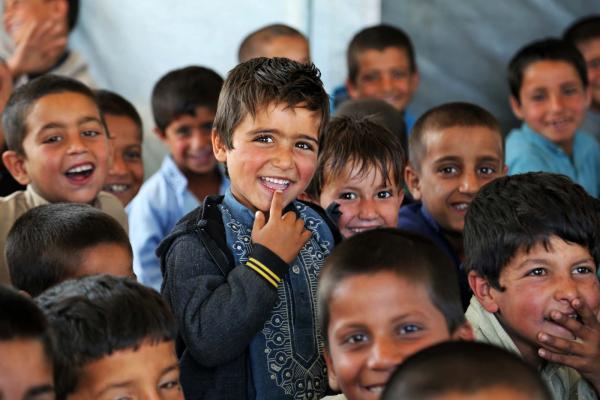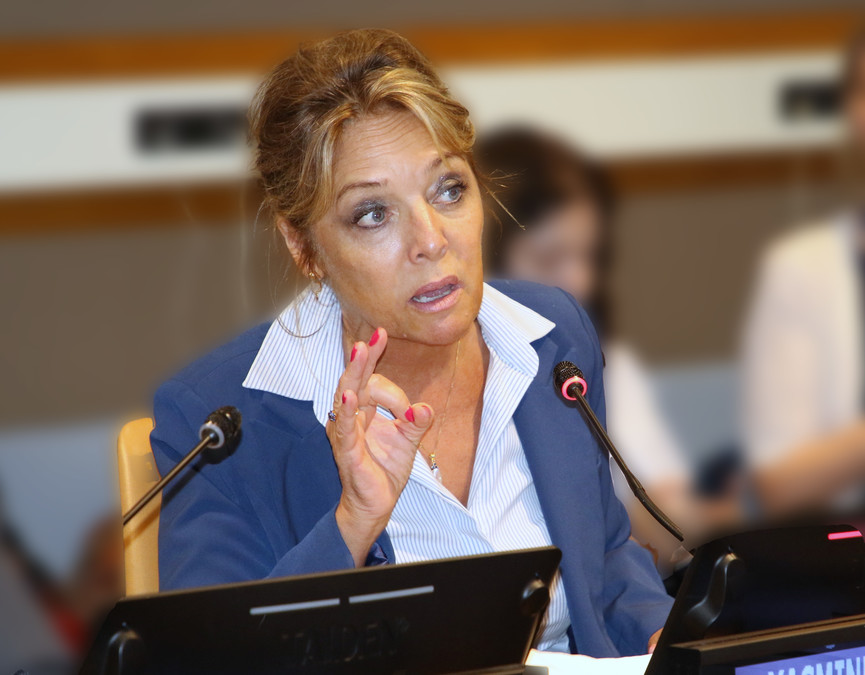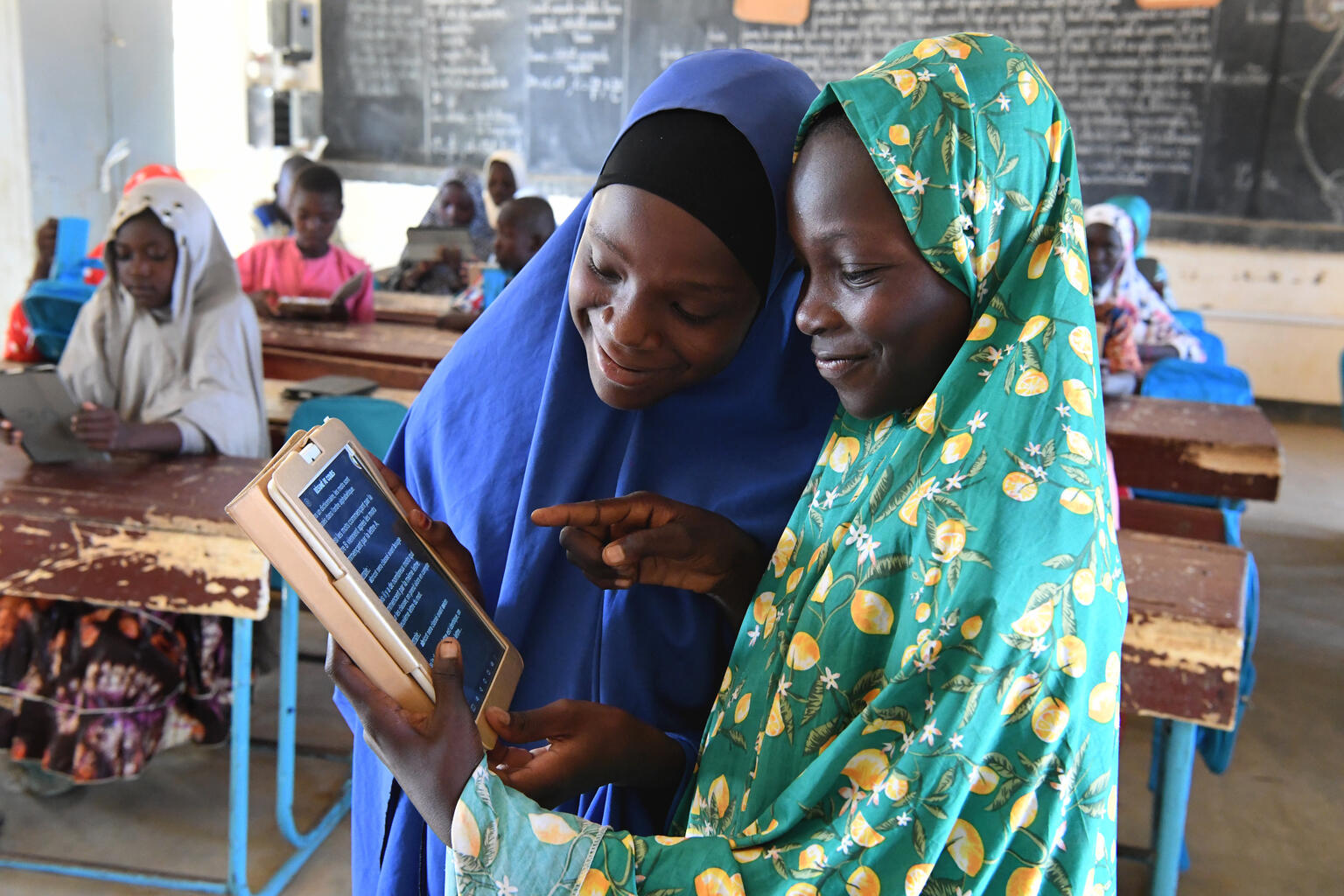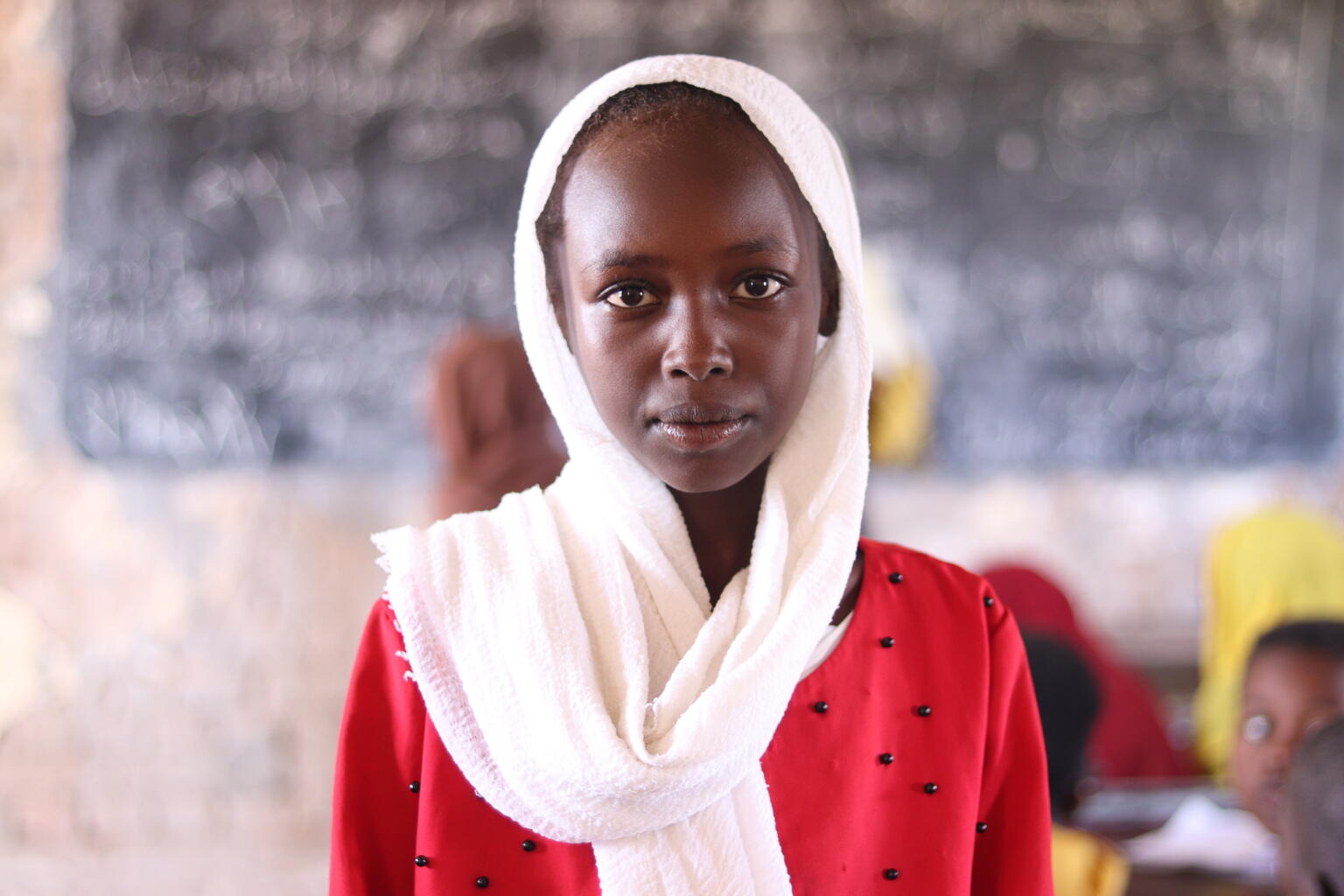Afghanistan: The Humanitarian Imperative Must Come First to Avoid Catastrophe

The international community must urgently step-up direct funding through United Nations agencies and NGOs to provide Afghan girls & boys with the life-saving support they need now
Article reposted with permission from Modern Diplomacy.
By Yasmine Sherif, Director, Education Cannot Wait
A harsh winter is coming. The people of Afghanistan are on the brink of mass starvation. Basic social services – education, health, protection, and access to food and livelihoods are crippled. Salaries of civil servants, teachers, doctors, nurses, are not being paid.
Some 38 million people who have already suffered decades of conflict now face the biggest humanitarian crisis on earth. Together, we must step up our global response. The world must not turn its back: Afghanistan cannot wait.
At this critical moment, the humanitarian imperative must come first to avoid a preventable catastrophe, and education must be at the heart of our collective response.
When the de facto authorities took over the country just two months ago, most schools had been closed for a prolonged period due to the COVID-19 pandemic. Since then, primary schools have reopened for girls and boys. At the secondary level, schools have reopened for boys countrywide, while some schools reopened for girls in a number of provinces.
While this is encouraging, this is the time to support the education of all children and youth in Afghanistan. On my recent all-women mission to Afghanistan for Education Cannot Wait (ECW), I saw first-hand the approaching humanitarian catastrophe.
We must not stop advocating together for the right of all girls and boys in Afghanistan to access a full 12 years of quality education – which benefits each child, every adolescent, and especially teenage girls – as well as their families, communities and the country.
The right to education is a basic, inherent human right. The Afghan people know this. In 2000, only one million Afghan children were enrolled in school, with less than 10 per cent being girls. In 2019, this number had increased to around 9.9 million, including 39 per cent girls.
Today, these important gains are at stake largely due to the magnitude of this humanitarian crisis. Today, 4.2 million children are out-of-school, of whom 60 per cent are girls. Unless we act immediately, the future of Afghanistan’s next generation is at greater risk than ever before.
Schools that are open need immediate support to operate. Teachers’ salaries must be paid. Teaching and learning materials are needed. Support is required to ensure schools are safe spaces for learning, especially for female teachers and girls. Students need access to health, psychosocial, nutrition and water and sanitation services.
Vulnerable families need support to send their children to school – particularly girls – rather than resorting to child labour and child marriage out of necessity. There are tragic reports of families selling their baby girls just to put food on the table.
During my mission to Afghanistan, I met with United Nations (UN) agencies and international and national non-governmental organisations (NGOs) on the ground. UNICEF has the capacity to do deliver teachers’ salaries and expand community-based learning centres. UNHCR, WFP and numerous NGOs, such as Save the Children, the Swedish Afghanistan Committee, the Aga Khan Foundation, also have presence across Afghanistan and the capacity to deliver on the educational needs without delay.
There is reason to be optimistic. The Swedish Afghanistan Committee has successfully negotiated the return of adolescent girls’ in secondary schools supported by this NGO in 14 provinces, and UNICEF is ready to deliver teachers’ salaries immediately.
But to do so, they urgently require significant funding. In all, US$1 billion is immediately needed for the education response in Afghanistan.
While the bulk of foreign aid has been frozen since the Taliban takeover, the direct execution modality for bilateral and multilateral aid allows international donors and partners to channel money directly to UN agencies and NGOs.
Developed by the UN, this modality enables aid to directly and rapidly reach vulnerable children, women and families in crises. It’s been used effectively for decades to support emergency relief such as food, water and emergency shelters.
I also met with the de facto education authorities in Kabul who indicate they are not opposed to this direct execution modality for UN and NGO partners to support the delivery of basic social services such as education for girls and boys.
International donors have traditionally approached education aid through longer-term development investments working with national governments. But they must shift this paradigm as conflicts and crises multiply and become more protracted.
In a crisis context such as Afghanistan, the direct execution modality provides an efficient solution to support and sustain aid interventions that provide quality learning opportunities to children and adolescents.
Education Cannot Wait – the UN global fund for education in emergencies and protracted crises – was created five years ago to deliver results for crisis-affected children this way.
We fund UN agencies and NGOs that coordinate and jointly support the children and their families directly with the life-saving, quality education they need in a humanitarian crisis.
Since no single aid organisation can meet the full scope of needs, Education Cannot Wait was designed to bring together UN agencies and NGOs to work together through pooled funding that is disbursed with speed and through direct execution.
Together with our on-the-ground partners, we have been delivering on the humanitarian imperative in Afghanistan since 2018 through this approach. With community-based education and accelerated learning programmes, we have been supporting marginalised children – 58 per cent of whom are girls – including in areas outside of the previous government’s control.
With a significant decrease in security incidents across the country, our UN and NGO partners can now access new areas. This means that with sufficient resources, these community-based programmes could be immediately expanded to provide learning opportunities to children and adolescent who have never been to school before.
With urgent donor support, we can provide girls like Arezou – who I met during my visit at a girls’ primary school in Kabul – with books, safe learning spaces, mental health and psychosocial support. We can support dedicated teachers – like the courageous female educational staff I met at the school – with the resources, materials and training they need to do their work.
The return on investment for education spending is impressive. Incomes go up by 10 percent for each year of additional learning, and the World Bank estimates that we could generate an additional $15 to $30 trillion if every girl, everywhere, were able to complete 12 years of education.
Arezou is just one of the millions of girls in Afghanistan who deserves the chance to learn, to grow, to dream. With our focus on the humanitarian imperative, we are investing in human lives and the human rights of children like Arezou. Let’s put politics aside and let our humanity come first.
This is about doing the right thing together for our shared humanity. It’s about empowering the next generation of Afghan boys and girls to thrive and reach their full potential. Their education cannot wait. Afghanistan cannot wait. We must act together. We must act now.




